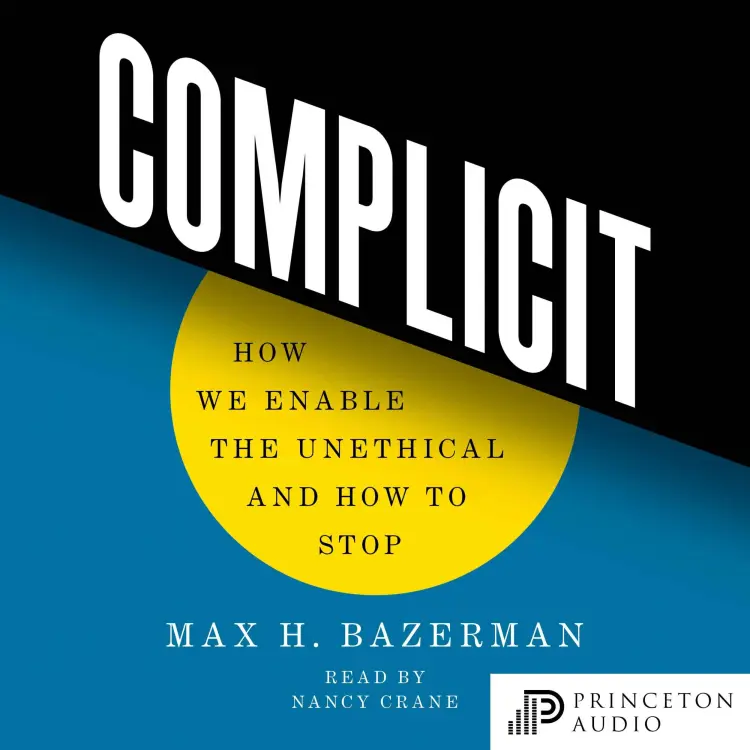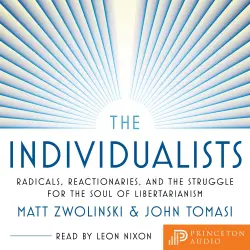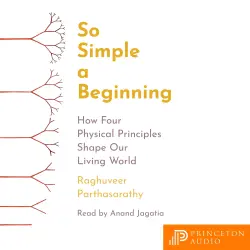
Complicit - How We Enable the Unethical and How to Stop
Max H. Bazerman
Unabridged
6 Stunden 43 Minuten
Hinweis: Für das Abspielen der Hörbücher oder Hörspiele können auf den jeweiligen Plattformen, wie z.B. Spotify, Kosten anfallen. Lismio hat keinen Einfluss darauf, welche Hörbücher und Hörspiele bei dem Service verfügbar sind.
Einige Artikel enthalten Affiliate-Links (gekennzeichnet mit einem Sternchen *). Wenn ihr auf diese Links klickt und Produkte kauft, erhalten wir eine kleine Provision, ohne dass für euch zusätzliche Kosten entstehen. Eure Unterstützung hilft, diese Seite am Laufen zu halten und weiterhin nützlichen Content zu erstellen. Danke für eure Unterstützung!
Vom Herausgeber
This audiobook narrated by Nancy Crane reveals what all of us can do to fight the pervasive human tendency to enable wrongdoing in the workplace, politics, and beyond
It is easy to condemn obvious wrongdoers such as Elizabeth Holmes, Adam Neumann, Harvey Weinstein, and the Sackler family. But we rarely think about the many people who supported their unethical or criminal behavior. In each case there was a supporting cast of complicitors: business partners, employees, investors, news organizations, and others. And, whether we're aware of it or not, almost all of us have been complicit in the unethical behavior of others. In Complicit, Harvard Business School professor Max Bazerman confronts our complicity head-on and offers strategies for recognizing and avoiding the psychological and other traps that lead us to ignore, condone, or actively support wrongdoing in our businesses, organizations, communities, politics, and more.
Complicit tells compelling stories of those who enabled the Theranos and WeWork scandals, the opioid crisis, the sexual abuse that led to the #MeToo movement, and the January 6th U.S. Capitol attack. The book describes seven different behavioral profiles that can lead to complicity in wrongdoing, ranging from true partners to those who unknowingly benefit from systemic privilege, including white privilege, and it tells the story of Bazerman's own brushes with complicity. Complicit also offers concrete and detailed solutions, describing how individuals, leaders, and organizations can more effectively prevent complicity.
By challenging the notion that a few bad apples are responsible for society's ills, Complicit implicates us all-and offers a path to creating a more ethical world.
It is easy to condemn obvious wrongdoers such as Elizabeth Holmes, Adam Neumann, Harvey Weinstein, and the Sackler family. But we rarely think about the many people who supported their unethical or criminal behavior. In each case there was a supporting cast of complicitors: business partners, employees, investors, news organizations, and others. And, whether we're aware of it or not, almost all of us have been complicit in the unethical behavior of others. In Complicit, Harvard Business School professor Max Bazerman confronts our complicity head-on and offers strategies for recognizing and avoiding the psychological and other traps that lead us to ignore, condone, or actively support wrongdoing in our businesses, organizations, communities, politics, and more.
Complicit tells compelling stories of those who enabled the Theranos and WeWork scandals, the opioid crisis, the sexual abuse that led to the #MeToo movement, and the January 6th U.S. Capitol attack. The book describes seven different behavioral profiles that can lead to complicity in wrongdoing, ranging from true partners to those who unknowingly benefit from systemic privilege, including white privilege, and it tells the story of Bazerman's own brushes with complicity. Complicit also offers concrete and detailed solutions, describing how individuals, leaders, and organizations can more effectively prevent complicity.
By challenging the notion that a few bad apples are responsible for society's ills, Complicit implicates us all-and offers a path to creating a more ethical world.








